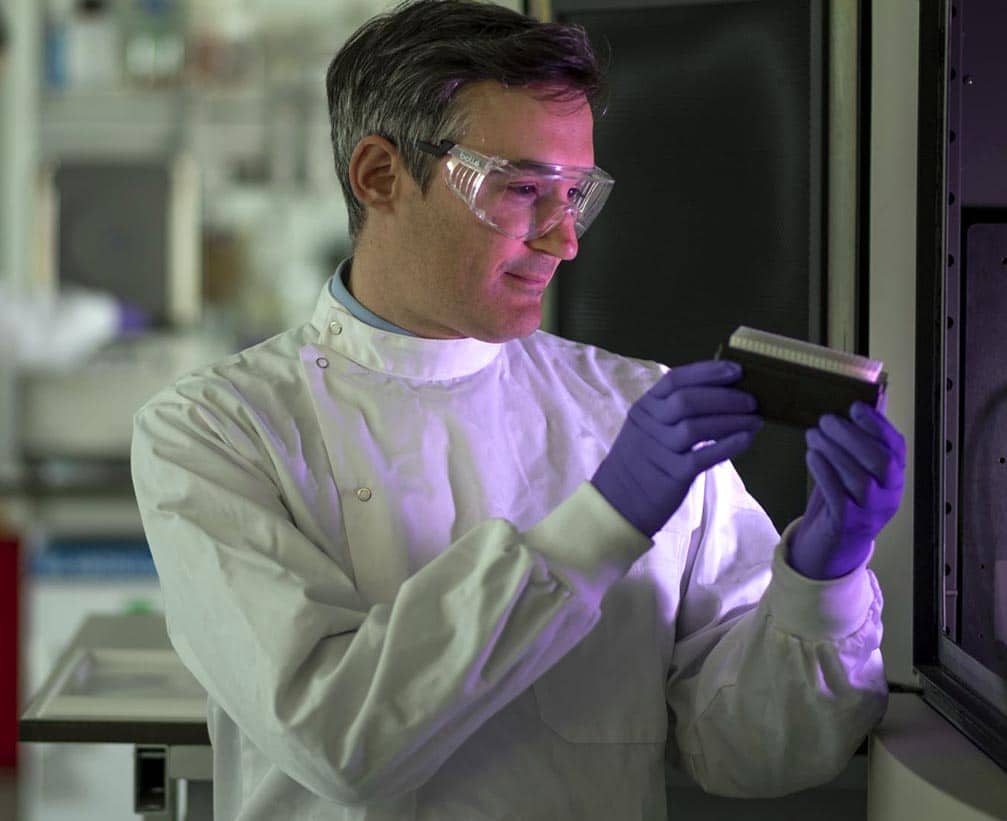A team from LifeArc and Göttingen University has developed a new approach to intervene in early-stage treatment of Alzheimer’s disease and demonstrated its therapeutic potential in mouse models.
Alzheimer’s disease is the most common type of dementia, affecting half a million people in the UK and causing a long, slow and irreversible deterioration in memory, thinking skills and language skills. There are no effective treatments to prevent or reverse the disease process.
One of the hallmarks of Alzheimer’s disease is abnormal structures that form in the brain. These ‘amyloid plaques’ are largely made up of insoluble clumps of Aß peptides. Many therapeutic strategies have focused on targeting Aß to reduce or prevent plaque formation and improve disease outcomes – so far without success. But Aß peptides come in several different molecular forms – and there is growing evidence that the shorter, soluble forms outside of plaques are key to disease progression.
The LifeArc/Göttingen team initially developed a mouse antibody that specifically binds to non-plaque Aß peptides. Using novel structural insights into the Aß peptide, the team generated a more potent ‘humanised’ version of the antibody. This antibody is effective at targeting soluble Aß peptide without affecting non-damaged tissues, indicating that the antibody could be effective in relatively low doses, with a reduced risk of side effects.
The researchers evaluated the effects of the antibody in two mouse models of Alzheimer’s disease, with striking results: plaque formation and early symptoms of the disease were significantly reduced in one model, while in the other, antibody administration reduced nerve cell loss and rescued memory deficits when compared to untreated mice. These are early but promising results in the journey towards a commercial therapy for a disease which places a tremendous social and economic burden on families and societies, costing the UK £26bn.
Find out more about how we translate promising science into benefits for human health and society.

